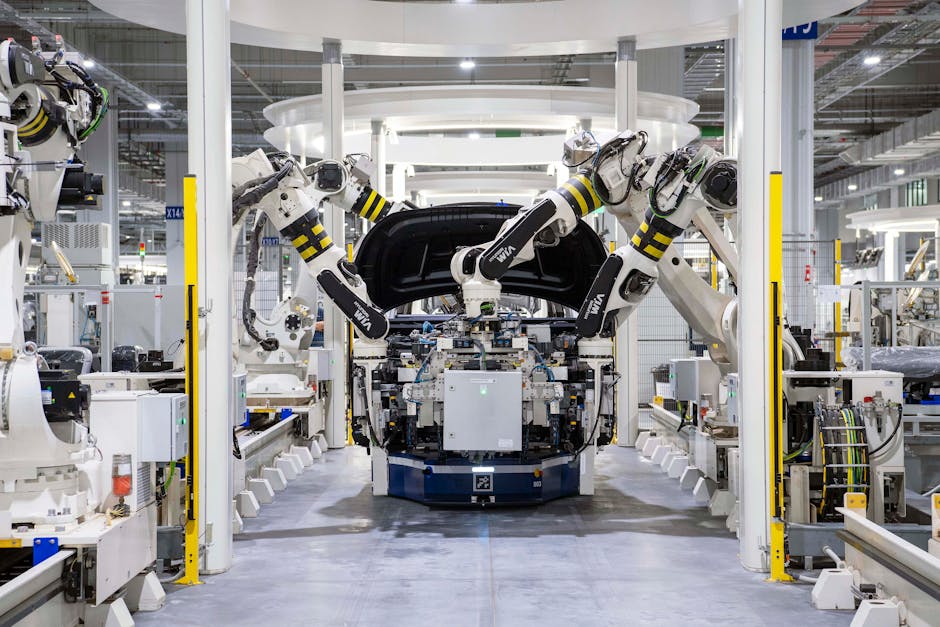
Revolutionizing Small Business: AI Workflow Automation
Benefits of AI workflow automation for small businesses
1. Enhanced Efficiency and Productivity
One of the primary advantages of AI workflow automation is its ability to optimize repetitive tasks and processes. By automating time-consuming activities such as data entry, report generation, and customer support, small businesses can allocate valuable resources towards more creative and strategic endeavors. This not only increases overall productivity but also enables employees to focus on high-value tasks that require human intelligence.
2. Cost Savings and Resource Optimization
Implementing AI workflow automation can significantly reduce operational costs for small businesses. By streamlining processes, businesses can eliminate inefficiencies and decrease the need for manual labor. Additionally, AI-powered tools can analyze large datasets swiftly, minimizing errors and providing accurate insights that facilitate better decision-making. Consequently, this leads to reduced costs associated with human error and enables businesses to allocate resources effectively.
3. Improved Customer Experience
With AI-based technologies like chatbots and virtual assistants becoming increasingly sophisticated, small businesses can enhance their customer service operations. Chatbots provide instantaneous responses to customer queries, ensuring round-the-clock support without human intervention. Moreover, AI algorithms can analyze customer data to personalize interactions, offer relevant product recommendations, and anticipate customer needs more effectively. This ultimately leads to higher customer satisfaction levels and increased loyalty.
4. Data-Driven Insights
AI workflow automation generates vast amounts of data that can be harnessed for valuable insights and informed decision-making. Small businesses can leverage AI algorithms to analyze customer behavior, market trends, and competitor strategies. These data-driven insights empower businesses to make proactive changes, optimize marketing campaigns, and identify untapped opportunities.
Pros of AI Workflow Automation for Small Businesses
1. Competitive Advantage
Implementing AI workflow automation offers small businesses a competitive edge by enabling them to operate at a level that was previously only achievable by larger enterprises. Automation streamlines processes, reduces errors, and enhances overall productivity, allowing small businesses to compete with industry leaders effectively.
2. Scalability and Flexibility
AI workflow automation is highly scalable, meaning it can adapt to the changing needs of small businesses as they grow and expand. The ability to automate processes ensures that businesses can handle increased workloads without compromising quality or efficiency. Moreover, AI automation tools can be integrated seamlessly with existing systems, offering flexibility in implementation.
Cons of AI Workflow Automation for Small Businesses
1. Initial Investment
While the long-term benefits of AI workflow automation are significant, small businesses may face initial financial barriers when implementing these technologies. The cost of acquiring AI software, training employees, and integrating it into existing systems may pose challenges for businesses with limited financial resources.
2. Workforce Adaptation
Integrating AI workflow automation requires employees to adapt their roles and acquire new skill sets. This transition may cause resistance from the workforce due to fears of job displacement or lack of technological know-how. To mitigate this concern, providing adequate training and ensuring open communication is crucial.
AI workflow automation has emerged as a transformative solution for small businesses in streamlining operations, enhancing productivity, and gaining a competitive advantage. By automating repetitive tasks, optimizing resources, and providing data-driven insights, small businesses can allocate more time and effort towards core business activities. Although there are potential challenges in terms of upfront investment and employee adaptation, the long-term benefits of AI workflow automation make it a promising avenue for small businesses seeking growth and success in the digital era.
